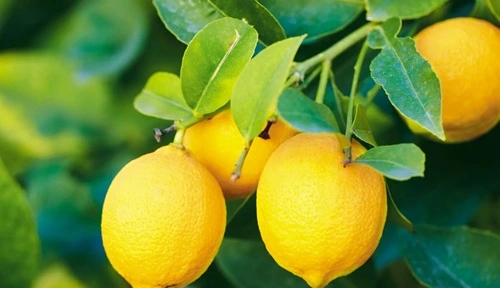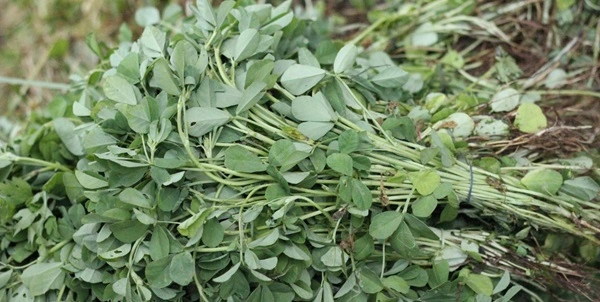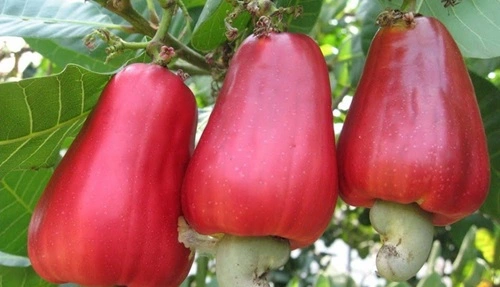Lemons are one of the most cultivated citrus fruits in India, valued for their refreshing flavor, high Vitamin C content, and diverse uses. From culinary applications to medicinal and industrial purposes, lemons are indispensable. India is among the leading producers of lemons globally, with states like Maharashtra, Andhra Pradesh, Gujarat, Tamil Nadu, and Rajasthan leading in cultivation.
Different lemon varieties are grown across India to suit varying climatic conditions and purposes, including fresh consumption, juice extraction, pickling, and essential oil production. This article highlights the top lemon varieties grown in India, detailing their characteristics, regions, and uses.

1. Kagzi Lime
Kagzi lime is the most popular and widely grown lemon variety in India. It is known for its thin skin, high juice content, and acidic flavor. This variety is ideal for juicing and pickling.
- Skin: Thin, green to yellow when ripe
- Size: Small to medium-sized, round
- Regions: Maharashtra, Andhra Pradesh, Gujarat, Madhya Pradesh
- Uses: Juice extraction, pickles, culinary purposes
- Characteristics: High acidity, abundant juice, low seed content
2. Assam Lemon (Kaji Nemu)
Assam Lemon, locally known as Kaji Nemu, is a specialty of northeastern India. It has an elongated shape, thick skin, and a refreshing flavor. This variety is prized for its medicinal properties and use in traditional Assamese cuisine.
- Skin: Thick, bright yellow
- Size: Medium to large, elongated
- Regions: Assam, Meghalaya, West Bengal
- Uses: Fresh consumption, pickles, herbal remedies
- Characteristics: Fragrant, juicy, low acidity
3. Italian Lemon
Italian Lemons are large-sized lemons grown for their aromatic and flavorful juice. This variety is popular for its use in beverages, desserts, and extraction of lemon essential oil.
- Skin: Thick, glossy yellow
- Size: Large, oval
- Regions: Maharashtra, Tamil Nadu, Kerala
- Uses: Juices, desserts, oil extraction
- Characteristics: Aromatic, low seeds, tangy flavor
4. Pramalini Lemon
Pramalini Lemon is an improved variety known for its high juice content and consistent yield. It is preferred for commercial cultivation due to its adaptability and productivity.
- Skin: Thin, smooth, light yellow
- Size: Medium-sized, round
- Regions: Karnataka, Maharashtra, Andhra Pradesh
- Uses: Juice extraction, fresh markets
- Characteristics: High juice yield, disease resistance
5. Galgal (Hill Lemon)
Galgal, also known as Hill Lemon, is grown primarily in the hilly regions of India. It has thick skin, a mildly sour taste, and is often used for pickling and juice preparation.
- Skin: Thick, rough, yellow
- Size: Large, round to slightly oblong
- Regions: Himachal Pradesh, Uttarakhand, Jammu & Kashmir
- Uses: Pickling, juices, medicinal purposes
- Characteristics: Hardy, suitable for hilly climates, rich flavor
6. Seedless Lemon
As the name suggests, Seedless Lemons are high-yielding and seedless, making them ideal for juice extraction and commercial purposes. This variety is gaining popularity for its convenience.
- Skin: Smooth, yellow
- Size: Medium, round
- Regions: Maharashtra, Gujarat, Andhra Pradesh
- Uses: Juices, fresh markets, culinary purposes
- Characteristics: Seedless, high juice content, tangy taste
7. Pant Lemon
Pant Lemon is a high-yielding variety developed for its resistance to pests and diseases. It produces large, juicy fruits that are ideal for table use and juice production.
- Skin: Thin to medium, yellow
- Size: Medium, round
- Regions: Uttar Pradesh, Punjab, Haryana
- Uses: Juices, culinary purposes
- Characteristics: Disease-resistant, high juice yield
8. Vikram Lemon
Vikram Lemon is a high-yielding hybrid variety developed for commercial cultivation. It is known for its long shelf life and uniform fruit size.
- Skin: Smooth, glossy yellow
- Size: Medium, round
- Regions: Gujarat, Tamil Nadu, Maharashtra
- Uses: Fresh consumption, pickles, juices
- Characteristics: Long shelf life, consistent size, disease-resistant
9. Jalandhar Lemon
Jalandhar Lemon is a local variety grown in Punjab. It is a hardy variety with thick skin and excellent adaptability to the region’s climatic conditions.
- Skin: Thick, rough, greenish-yellow
- Size: Medium to large
- Regions: Punjab, Haryana
- Uses: Pickles, juices, fresh markets
- Characteristics: Hardy, suitable for North Indian conditions
10. Eureka Lemon
Eureka Lemon is an internationally recognized variety grown in some parts of India. It produces large, aromatic fruits with high juice content and is ideal for commercial purposes.
- Skin: Thin to medium, bright yellow
- Size: Large, oval
- Regions: Kerala, Maharashtra, Tamil Nadu
- Uses: Juices, oil extraction, table fruit
- Characteristics: Tangy, aromatic, high market demand
11. Rough Lemon
Rough Lemons are primarily used as rootstocks for other citrus plants due to their hardy nature. The fruit has a thick, rough skin and moderate juice content.
- Skin: Rough, thick, green to yellow
- Size: Medium
- Regions: Rajasthan, Madhya Pradesh, Gujarat
- Uses: Rootstocks, pickling, culinary purposes
- Characteristics: Hardy, drought-resistant
12. Mosambi (Sweet Lime)
Though technically not a true lemon, Mosambi is closely related to lemons and widely grown in India. It has sweet, mild juice, making it a popular fruit for beverages.
- Skin: Thin, smooth, yellowish-green
- Size: Medium, round
- Regions: Maharashtra, Andhra Pradesh, Telangana
- Uses: Juices, fresh consumption
- Characteristics: Sweet flavor, refreshing juice
FAQs
Q1: Which is the most widely grown lemon variety in India?
A: Kagzi Lime is the most widely grown lemon variety in India due to its high juice content and thin skin.
Q2: Which lemon variety is best for pickling?
A: Galgal (Hill Lemon) and Kagzi Lime are ideal for pickling due to their size, taste, and thick skin.
Q3: Which lemon variety is seedless?
A: Seedless Lemons are specifically bred for their seedless nature and high juice yield.
Q4: What is Assam Lemon used for?
A: Assam Lemon (Kaji Nemu) is used for fresh consumption, herbal remedies, and pickling.
Q5: Which state is the largest producer of lemons in India?
A: Maharashtra is the largest producer of lemons in India, followed by Andhra Pradesh and Gujarat.
India’s diverse agro-climatic conditions enable the cultivation of numerous lemon varieties, catering to domestic and industrial needs. From the commonly grown Kagzi Lime to the regional specialty Assam Lemon and modern hybrids like Seedless Lemons, each variety serves a unique purpose. With the growing demand for lemons in culinary, medicinal, and industrial sectors, cultivating these top lemon varieties offers significant opportunities for farmers and agribusinesses across India.

